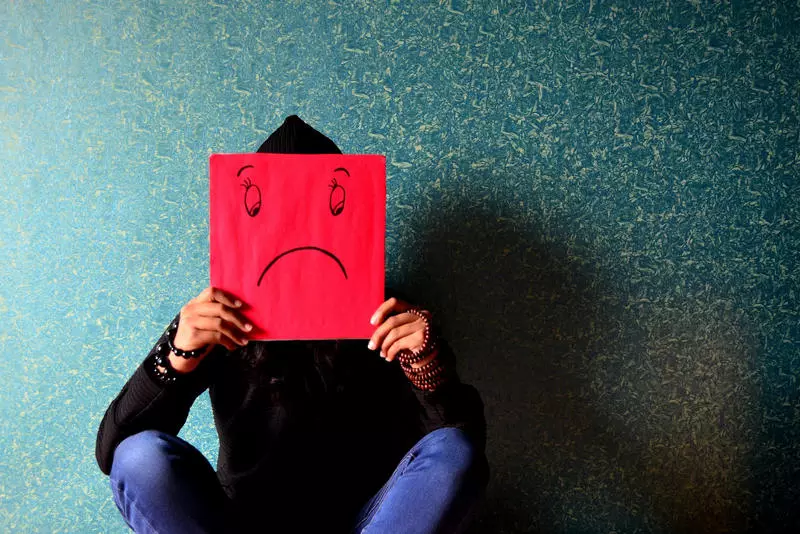Depression is a serious mental health issue that affects millions of people worldwide. While there is no single cause for depression, experts have identified childhood trauma as one of the risk factors for the development of depression later in life.
Childhood Trauma and Depression
Depression is one of the largest contributors to disease worldwide, especially in middle- and high-income countries. Critically, depression is a chronic illness in which a person experiences extreme sadness, emotional numbness, social withdrawal, or other related symptoms for a period greater than 2 weeks. While there are various possible causes and contributors to depression, some of which may still be unknown, one common cause in patients with depression is traumatic childhood experiences.
There are likewise many different varieties of trauma, however, according to expert A.M. Cooper, traumatic experiences are any events that provide a minimal sense of safety, result in overwhelming anxiety or helplessness, or produce an enduring change in a person’s mindset.
There are several surveys that show that those with mental disorders, including depression, are also more likely to have experienced childhood trauma. While this association does not confirm causality between childhood trauma and depression, the overlap does highlight childhood trauma as a possible risk factor for depression.
Understanding the link between childhood trauma and depression is essential, especially considering depression is one of the leading causes of disease burden worldwide. If any progress is to be made in diagnosing, treating, and preventing depression, people need to understand the pivotal role of childhood trauma in perpetuating these outcomes.
The Impact of Childhood Trauma on Mental Health
How can early-life trauma affect mental health?
A child’s family life has an incalculable effect on their growth, development, and mental health as they grow up. As children grow up, their behavior is modeled both in emulation of and in response to their parental figures. Through relationships with caregivers, a child learns to trust others, regulate their emotions, and interact with the world and outsiders.
When a child’s family relationship is unstable or unpredictable, the development of these constructs is disrupted, and children learn that the world is unsafe, that they are not deserving of love, or that they are somehow bad.

While this may seem extreme to adults, a child’s brain undergoes radical development as they age and as such are more likely to respond extremely to all varieties of input, both positive and negative. When a child is exposed to an extremely stressful or traumatic event or is repeatedly exposed to abuse, the child’s brain receives a repeated abundance of adrenaline and cortisol, two fear hormones, which ultimately elevate the child’s overall stress levels. These hormones increase the heart rate and blood pressure which, with repeated exposure, may lead to hypertension, heart attack, or other harmful outcomes, including adult depression.
Critically, according to a 2015 study, as much as 75% of depressed patients have clinically relevant histories of traumatic experiences. Most of the participants were victims of emotional abuse, while, about half of the participants reported emotional neglect, and the severity of this trauma ranged from moderate to severe. With this data, there is evidence to support a substantial influence of childhood trauma on severe and chronic adult depression.
While some forms of trauma are more often indicated in individuals with adult depression, this may result from those traumas being more prevalent in the population. Unfortunately, there are many categories of trauma that may have adverse effects on children and ultimately lead to depression.
What are the types of trauma?
There are three main types of trauma: acute trauma, chronic trauma, and complex trauma. Each type results from different events. Acute trauma usually results from a single incident while chronic trauma entails repeated and prolonged exposure to stressful events. Complex trauma, in comparison, involves exposure to varied and multiple traumatic events that are often invasive and interpersonal in nature.
Examples of traumatic events, separated by category, include:
Acute Trauma
- Natural Disasters
- Medical injury, illness, or procedure(s)
- Victim of a crime
- Accidents
- Loss
- School Violence
Chronic Trauma
- Sexual Abuse
- Physical Abuse
- Domestic Violence
- Community Violence
Complex Trauma
- Kidnapping
- Sexual abuse or incest
- Chronic neglect or abandonment
- Torture
- Parentification (child taking on adult on adult)
There is a variety of impacts childhood trauma may have on an individual. This will depend on the nature of the trauma, its intensity, and its duration, but can include effects on the child’s physical health, emotional responses, behavior, cognition, and finances.

Some possible specific impacts of early childhood trauma include:
- Chronic physical conditions
- Addictions (smoking, substance use, etc.)
- Obesity
- Depression
- Anxiety
- Emotional Numbing
- Intense behavior/excessive risk-taking
- Difficulty learning
- Trouble planning for the future
- Difficulty having or maintaining a job
Dealing with Trauma-Induced Depression
If you or someone you know is experiencing trauma-induced depression, it is imperative that you seek professional help. Recognize that there are options to cope with depression, and these paths can be catered to the individual’s specific case. Usually, intervention for trauma-induced depression will include one of the following:
- Medical Intervention – the use of medications to rebalance hormones in the brain.
- Therapeutic Assistance – the involvement of a mental health professional to administer effective therapy strategies and devise effective coping mechanisms.
- Peer Support – Engaging with a community of individuals who can relate to each other’s experiences and provide additional support.
Acknowledging these strategies, other helpful interventions to reduce the impact of trauma-induced depression can include increasing time spent with friends and family, partaking in regular exercise, practicing relaxation techniques, and making time for enjoyable activities.
Depression is a serious and prolific mental health issue, with specific links to traumatic experiences encountered in childhood. While there is no single cause for depression, the link between traumatic events and depression is well-supported scientifically. Though there is a great variety in the possible causes and manifestations of traumatic events, individuals need not suffer from trauma-induced depression alone, and there are many possible strategies to cope.
